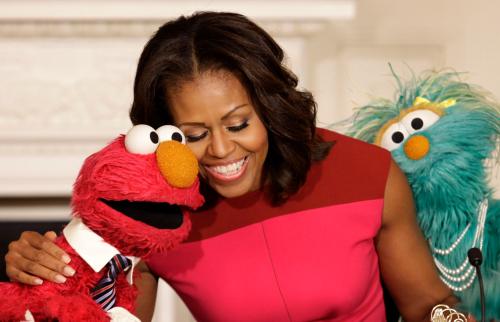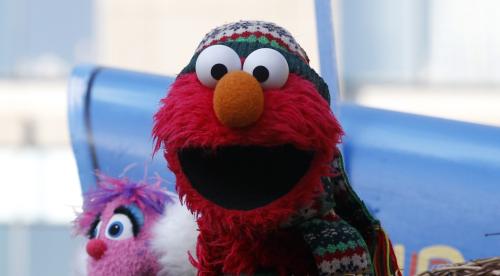This article originally appeared on The Hill on March 19, 2017.
Sesame Street will almost surely survive Donald Trump’s proposed budget cuts, but not in a way that will allow children from low-income homes to continue watching it. Sesame Street is popular enough that someone will pay for it to continue. HBO has already shown that, but, without public funding, children from low-income homes, the ones who benefit the most from the educational content of Sesame Street, are the ones who will lose it.
The federal government provides about $450 million to the Corporation for Public Broadcasting (CPB) each year, which the corporation then distributes to support local TV and radio station programming. That is 0.012 percent of a federal budget of 3.65 trillion dollars, or $1.43 per person in the U.S.
The production of Sesame Street actually does not rely heavily on CPB funding these days, but the dissemination does. HBO now pays to produce new episodes, with exclusive rights to those episodes for nine months before they are released to PBS.
Under this deal, there is still broad access to Sesame Street among non-HBO subscribers because of the enormous library of existing episodes, the eventual release of new episodes to PBS, and the widespread availability of PBS as a free station. But eliminating funding for CPB, and hence PBS, threatens the distribution of the show.
Research shows that the introduction of Sesame Street delivered remarkable benefits in terms of improvements in school readiness for children from disadvantaged communities at very little cost.
Research shows that the introduction of Sesame Street delivered remarkable benefits in terms of improvements in school readiness for children from disadvantaged communities at very little cost. Sesame Street was introduced with an explicit goal of improving school readiness, particularly for children from disadvantaged backgrounds.
The scene was purposely set on an urban stoop with an ethnically-diverse cast. Maria, Bob, Mr. Hooper, and the rest of the crew welcomed kids to come be part of their neighborhood. Their explorations were supplemented by the Count von Count teaching kids their numbers, the Cookie Monster teaching kids their letters, and Oscar the Grouch making kids aware of their emotions.
The show was deliberate, based on educational theories and research, and it has adapted over time to stay culturally and educationally relevant. Moreover, it costs just dollars per child per year.
Our research on the introduction of the Sesame Street program in the late 1960s finds that children who lived in areas with access to the Sesame Street broadcast were about 15 percent less likely to fall behind when they got to school than their counterparts who did not have broadcast access. This is a tremendous gain for such little financial outlay.
The positive effects were particularly large for boys and non-Hispanic blacks. The impact was about twice as large for children living in low-income counties. The finding holds relevance today, when the average preschooler watches four hours of television a day. The promise of and need for educational programming is as great as ever.
Thanks to the genius of the folks at Sesame Workshop (previously Children’s Television Workshop) and the broadcast of the show by PBS, our nation has a low-cost way of delivering early childhood enrichment directly to low-income children in their homes. This program is affordable, cost–effective and targeted at one of our nation’s greatest challenges — developing the educational potential of some of our nation’s neediest children.
Jimmy Kimmel joked that Donald Trump could benefit from watching Sesame Street. Neither Donald Trump nor his grandkids would lose access. The children whose families can’t afford to pay for HBO will. They will lose out. Why would we allow that to happen?
The authors did not receive financial support from any firm or person for this article or from any firm or person with a financial or political interest in this article. They are currently not an officer, director, or board member of any organization with an interest in this article.






Commentary
Op-edDisadvantaged kids to miss out on educational TV under Trump budget
March 21, 2017